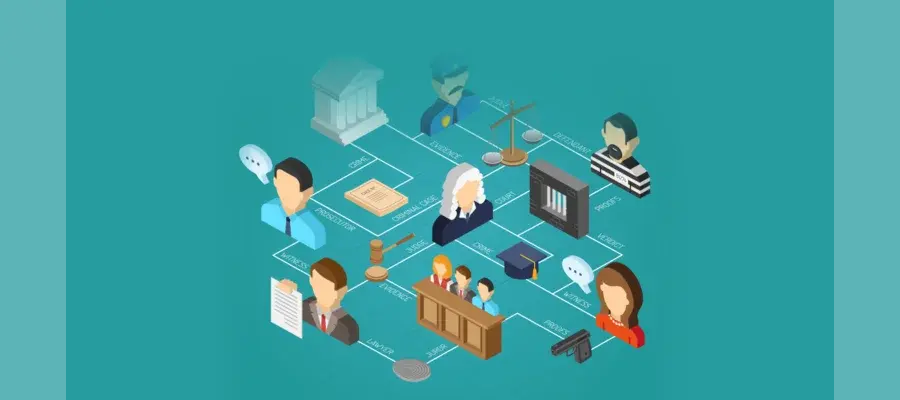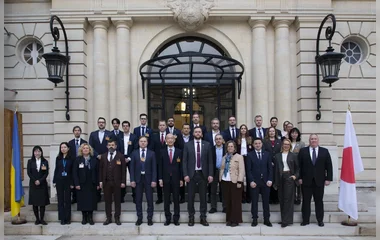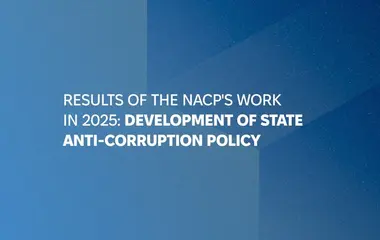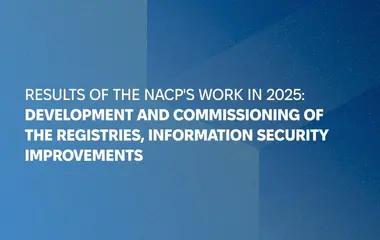Differences in the definition of corruption whistleblowers in the current legislation prevent the formation of a unified approach to working with this category of persons, and proper protection of their rights and guarantees. According to the State Anti-Corruption Program (clause 1.6.3.3.1.) in order to solve this problem, the National Agency on Corruption Prevention (NACP) should develop a draft law that, in particular, provides for the introduction of a broad definition of "whistleblower".
Thus, in the national legislation, the term "whistleblower" is defined in the Law of Ukraine "On Prevention of Corruption" (hereinafter - the Law) and the Criminal Procedure Code of Ukraine (hereinafter - the CPC).
The Law defines a whistleblower as a person who has reported facts of corruption that became known to him or her under certain conditions, namely in connection with his or her labor, professional, economic, public, scientific activities, service or training, or his or her participation in procedures provided for by law that are mandatory for the commencement of such activities, service or training.
At the same time, according to the CPC, a whistleblower is a person who has filed a statement or report of a corruption criminal offense with a pre-trial investigation body.
As it can be seen, the CPC of Ukraine does not duplicate the definition of "whistleblower" and does not contain a mandatory condition on the list of sources from which the whistleblower can learn information about corruption (labor, professional, economic, social, scientific activities, etc.). In other words, in this case, the legislator defines a whistleblower as a complainant in criminal proceedings.
However, the status of a whistleblower does not correspond to the essence of a whistleblower, and narrows his or her rights and obligations, as well as guarantees.
The applicant's rights defined in the CPC fully apply to the whistleblower, and the applicant who is a whistleblower additionally has the right to receive information on the status of the pre-trial investigation initiated upon his or her application or report. In practice, however, it is quite difficult for a whistleblower to obtain any information on the status of the pre-trial investigation in criminal proceedings.
When determining the status of a whistleblower, the investigator/detective has a wide discretion, which gives rise to corruption risks. The pre-trial investigation agencies still do not have a unified approach to registering criminal proceedings involving whistleblowers, as the relevant information in the Unified Register of Pre-trial Investigations does not usually reflect the participation of a whistleblower in criminal proceedings.
Since the NACP plays a key role in the institutional mechanism for protecting whistleblower rights, the CPC provides for the obligation of the investigator to notify the National Agency in writing of the start of a pre-trial investigation involving a whistleblower after entering the relevant information into the Unified Register of Pre-trial Investigations. At the same time, the NACP is not a party to criminal proceedings and has no authority to assess the investigator's actions or inaction in terms of ensuring the rights and guarantees of whistleblowers.
That is why whistleblowers are hostage to the investigator's subjective vision of their legal status in criminal proceedings, which affects their safety and protection from possible negative measures (dismissal, disciplinary proceedings, etc.) related to their reporting to pre-trial investigation agencies.
For citizens who have chosen to fight corruption, this has negative consequences, primarily the inability to enjoy "whistleblower immunity." In addition, failure to obtain the status of a whistleblower does not allow such a person to exercise the right to remuneration.
To solve the problem, it is necessary to introduce a unified concept of a whistleblower, in particular by harmonizing the definition of this term in the CPC (clause 162, part 1, article 3) with the corresponding norm of the Law (paragraph 20, part 1, article 1)
This will introduce a unified approach to the registration and pre-trial investigation of criminal proceedings involving whistleblowers and, accordingly, provide them with protection both within and outside of criminal proceedings.
Within its competence, the NACP is developing the necessary amendments to the legislation and counts on the support of this initiative from the stakeholders.









